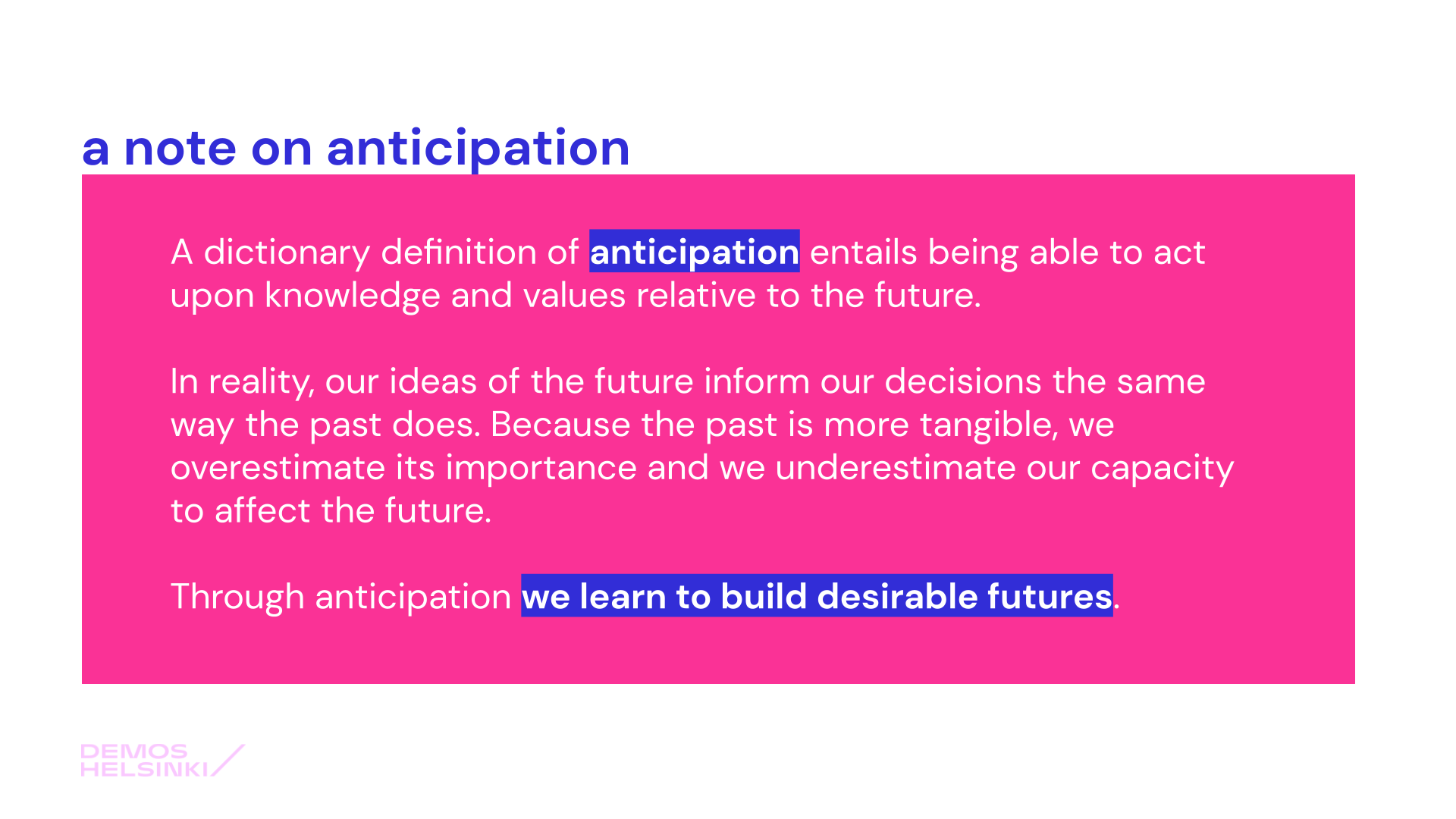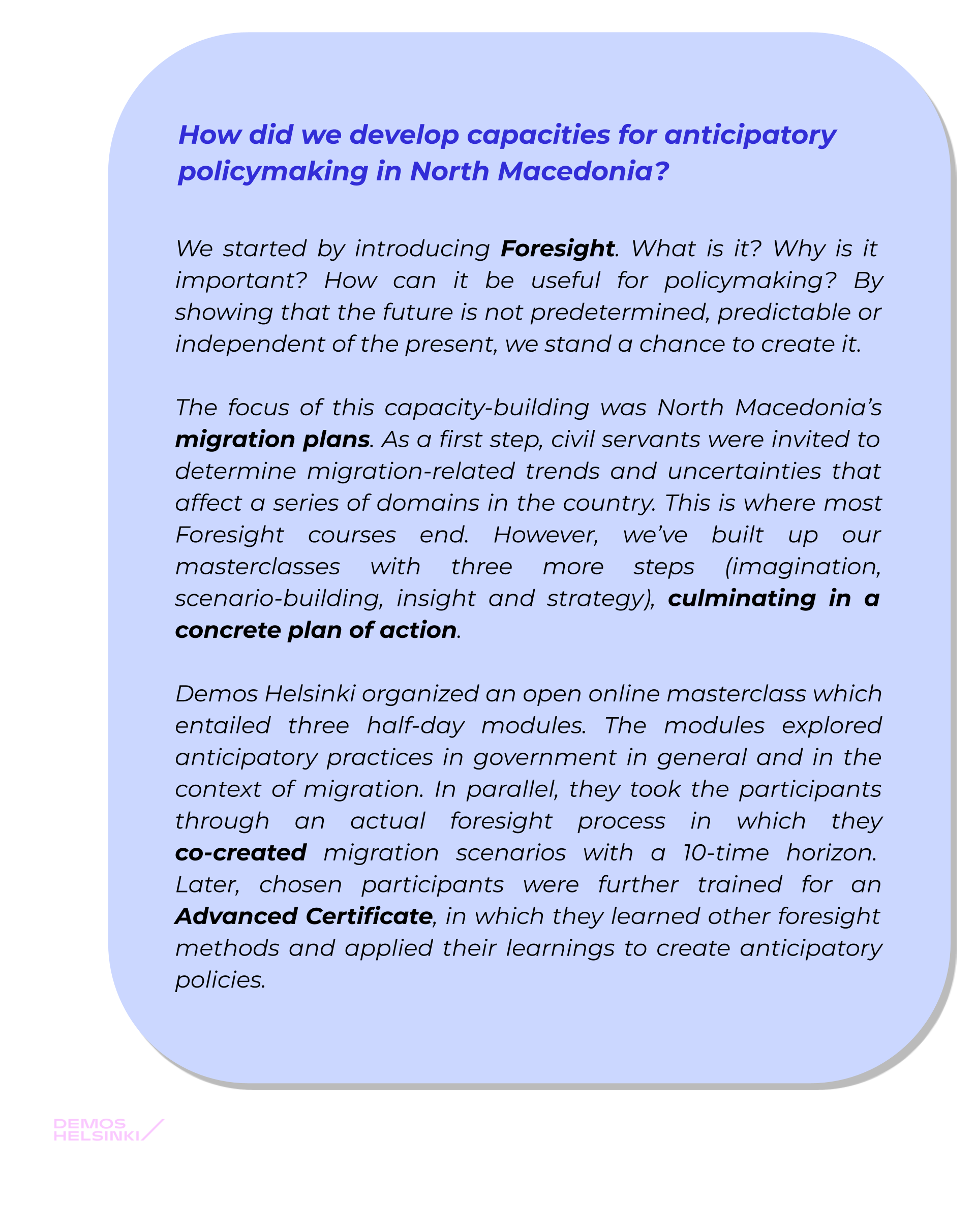Building capacity around foresight helps policymakers find better pathways to desired futures while learning to prepare for risks and looming challenges. That is why we are working with the United Nations High Commissioner for Refugees (UNHCR), the International Organization for Migration (IOM), and the United Nations Population Fund (UNFPA) to…
Building capacity around foresight helps policymakers find better pathways to desired futures while learning to prepare for risks and looming challenges. That is why we are working with the United Nations High Commissioner for Refugees (UNHCR), the International Organization for Migration (IOM), and the United Nations Population Fund (UNFPA) to build capacities for anticipatory policymaking in North Macedonia. You can read more about this project here.
Why anticipation?
Anticipation in the 21st century does not mean knowing what to expect — but remaining resilient in the face of the unexpected.
Effective anticipation requires thinking in advance — forestalling. This goes actively against what governments expect from their civil service.

Governments tend to over-value short-term interests and undervalue long-term interests. They consequently place too much value on:
- reactivity instead of proactivity,
- what seems probable based on the past instead of exploring possibilities,
- risk aversion instead of experimentation,
- solutionism instead of systems thinking.
The result is paralysis in the face of complexity and impending crises.
We cannot afford civil servants who are paralyzed.
Civil servants not only help us maintain stability, but they can also become agents of transformation.
That is why civil servants in North Macedonia are growing skillsets so that they create a desirable future in which they can be agents of governance — effective yet human.

This training program is part of our mission to empower a civil service fit for the 21st century.
For more information or to build a training program specifically targeted to your civil service, please contact:
Mikael Sokero
Senior Expert
mikael.sokero@demoshelsinki.fi
See examples of our work:
- Building capacities for a 21st-century civil service
- Train-the-Trainers program for Latvian policy planners
- Training Future Leaders in the Finnish civil service
- Training Agile Leaders in Bahrain
Feature Image: Judy Dillon / iStock

A new ethos for the civil service
Publication
June 14, 2023
The big “how”: New ways to govern industrial policy
Post
July 13, 2023
From fortress to foresight: A new way of governing migration
Publication
April 6, 2023
Training Agile Leaders in Bahrain
Project
June 20, 2022
Train-the-Trainers program for Latvian policy planners
Project
June 20, 2022
Training Future Leaders in the Finnish civil service
Project
June 20, 2022
Experimentation Guidelines for the Latvian Public Sector
Publication
April 21, 2021
Embedding a long-term view
Theme
December 3, 2024
Capacity building
Theme
December 5, 2024
The anticipatory policy cycle: not just preparing for the future, but influencing it
Post
May 14, 2025
South Sudan builds long-term thinking while addressing present needs
Project
May 22, 2025
Young people and the future of Scotland: a participatory Horizon Scanning engagement
Publication
June 17, 2025